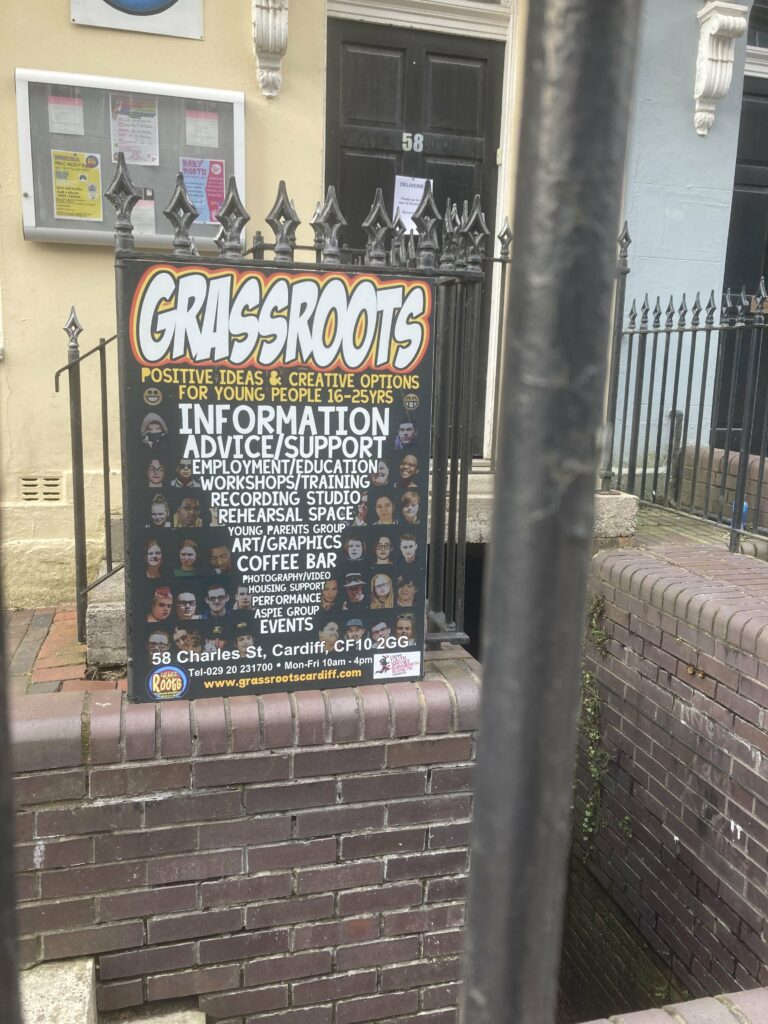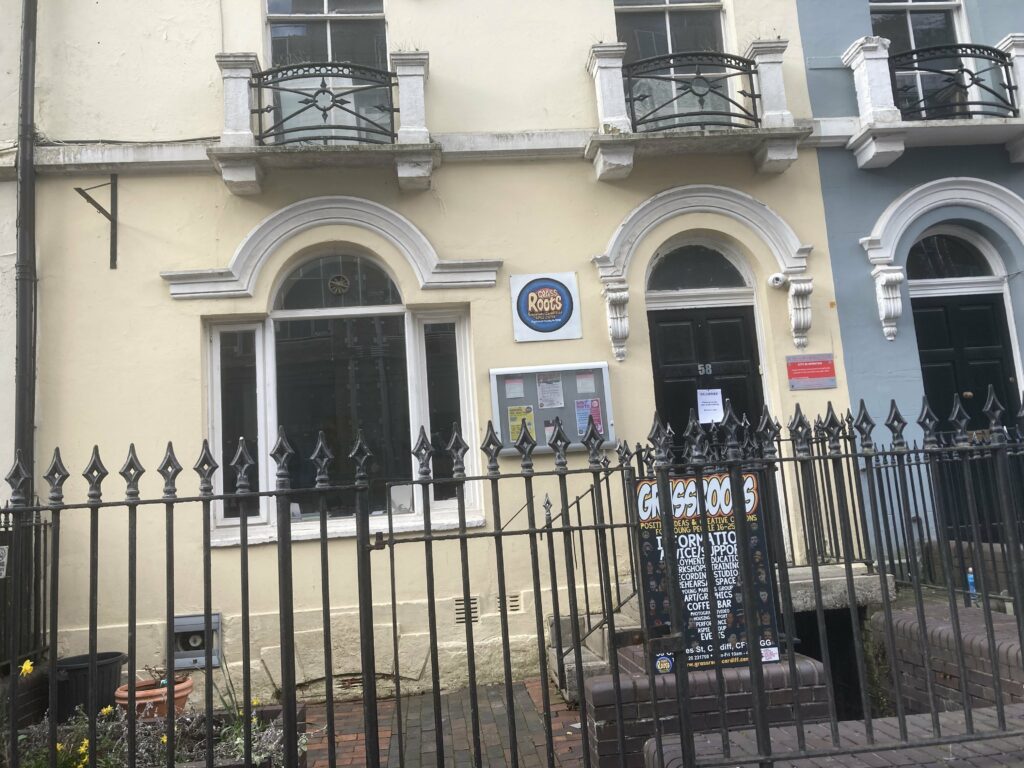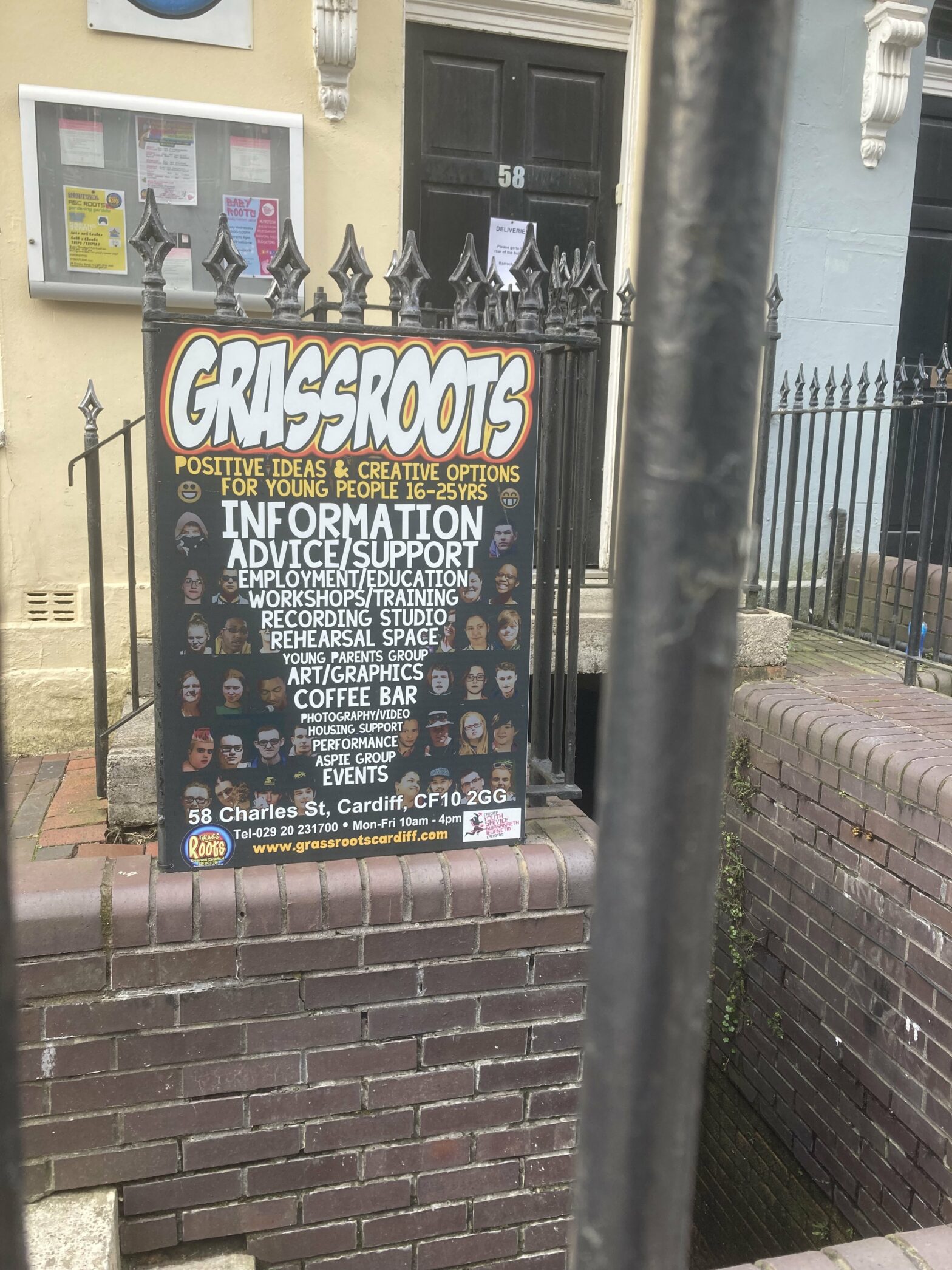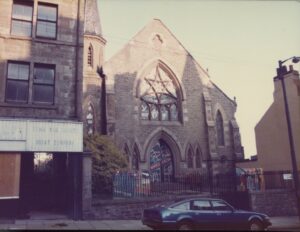By Jack Dangerfield
Description
The 1960s and 1970s saw an upturn in the number of housing clearances in Cardiff’s inner-city area. This had the inevitable effect of increasing homelessness in the city. Faced with the threat of eviction, many communities came together to organise campaigns and develop community-led services and projects to support people affected by the clearances. Many of these projects resulted in positive long-term outcomes, galvanising communities around common issues.
One such project was Cardiff Community Concern (CCC), set up by Ian Horsburgh in 1976. Horsburgh, who was recently interviewed for the Spaces of Hope research project, worked for the city council and was alarmed by the increase in homelessness in the city during the 1970s. There was a particular problem with homelessness amongst 16-17 year olds as the council had no responsibility to house single young people or childless couples. CCC was established to provide advice and support to the local community and, three years later in 1979, they opened the Grassroots coffee bar at 58 Charles Street which was intended as a space where young people could meet and informally discuss their problems with CCC employees. The building had been rented from the Council by another organisation which collapsed presenting the opportunity for Horsburgh to base CCC there, at a low cost. They had funding to employ a solicitor who provided legal advice to people living in squats.
Ian Horsburgh noticed a trend in Cardiff and across the UK where communities affected by housing clearances were beginning to organise campaigns and react against them. He stated:
“So this was at a time when people were, particularly in a city,…starting to react against [housing] clearance and there [were] things going on all over the country.”
Horsburgh saw CCC’s work as part of this trend and, recognising the need to do something to support young homeless people, he and CCC set up a separate charity, the ‘Cardiff Flat Shop’, which was run from the same building in Charles Street. This organisation established a register of ‘landlords’; people who were willing to provide temporary accommodation for homeless people. The Flat Shop also campaigned for the provision of greater support for homeless people in the city. The charity became very influential as it had people on its committee from social services, probation (this was Mark Drakeford, the current First Minister of Wales), and the city’s chief housing officer.
The charity was successful in applying for funding to run the service for three years (partly from the Welsh Office and partly from Cardiff Council) and, with this, were able to employ John Wilson as a community worker. Through their campaigning work, they were able to persuade the council to build new housing in Tudor Street specifically for homeless young single people and childless couples. After the funding ran out, the Cardiff Flatshop carried on as a voluntary group and eventually was incorporated within the council as the policies they were pushing for were adopted by them.
Another scheme initiated by CCC was the Charles Street Carnival which was organised as an alternative event during the Queen’s Silver Jubilee in 1977. The carnival was a huge success, and provided a space for community groups to come together and share ideas and celebrate creativity and the arts in the city. It was so popular that it became an annual event and an umbrella organisation, founded by CCC, the Charles Street Arts Foundation (CSAF), was created to support community arts projects, including the carnival. Several murals were created around the city, one of which can still be found on the back of the Chapter Arts Centre. The carnival continued for 20 years and its founders encouraged anyone to set up a stall. Describing the Charles Street Carnival, Horsburgh said:
“[The Charles Street Carnival] went on for, I think, nearly 20 years and…just anybody could go and put a stall up there. Anything happened in that street so long as it wasn’t racist, sexist or whatever, we had that condition. But it was a peculiar mix of all community groups under the sun. It was the only time that it ever happened in Cardiff.”
CSAF was founded in 1984 and was initially solely funded by its members and the commitment of volunteers. From 1985 to 1988, CSAF had funding to open an office at 54 Charles Street and hire paid staff which enabled it to greatly expand its activities by training local artists and musicians, with many of them going on to jobs in the arts. It promoted a variety of activities including music, the visual arts, poetry readings, dance, silk-screen painting, pottery and creative writing.
In his interview, Horsburgh was keen to point out that multiple very positive community-led initiatives were developed as a reaction to threats to existing communities from large-scale redevelopment in inner-city areas across the country. The community-led initiatives described in this case study were, according to Horsburgh, developed as a reaction to a sharp rise in homelessness caused by housing clearances in Cardiff. They demonstrate what can be achieved when affordable offices and physical spaces are provided for groups of idealists from the community to come together to support each other’s work, share ideas and collectively respond to current social and economic issues. CCC acted as a catalyst for several other important community initiatives that provided support to people in need. Ian Horsburgh explained:
“The council…didn’t seem to be that bothered and we just developed the building as a coffee bar for [the] young unemployed. And from that, many, many projects started, including the Charles Street Arts Foundation. And we were able to get money from the Manpower Services Commission to fund things like looking at the history of the street and then running the Charles Street Carnival, which was a community, very much a community carnival.”
From this, we can assume that, certainly at the time these events took place, the opportunity provided for such groups to come together was rare, and events such as the Charles Street Carnival provided an important opportunity for different community groups to gather and celebrate local creativity, strengthening communities in the process.
Today, 58 Charles Street is still used as an advice and support centre for young people aged 16 – 25 (see Figure 1) and has kept its original name – Grassroots. Its website claims that they support 40 – 50 young people every day, which highlights a continuing need for such a service in the centre of the city. It states:
“Grassroots is iconic with a rich history stretching back to the punk culture of 1979. The community project developed into a haven for any young person in crisis or need, where self-expression was encouraged and creativity celebrated. Becoming a charity, Grassroots has a long history of working in partnership with Cardiff Council, statutory and voluntary services to provide an effective framework of support to young people.”

Figure 1. The front of the Grassroots centre at 58 Charles Street as it is today
It is worth reflecting on the conditions which enabled so many community-based projects to flourish during this short period. It seems as though CCC were able to rent the building from Cardiff Council at a low cost while there didn’t seem to be much restricting the building’s use for different purposes. Clearly, the determination of a small group of people, led by Ian Horsburgh, led to the initiation of the different groups, however the sustained availability of 58 Charles Street at a reasonable cost played an important role in their longevity.

About the author: Jack Dangerfield works as a Planning Officer for Herefordshire Council. He holds a particular interest in community-led planning, social justice, improving people’s health and wellbeing through planning and planning for climate change. Prior to working for Herefordshire Council, he completed a Masters degree in Town Planning at the University of Brighton while he was working for the Town & Country Planning Association (TCPA). For his thesis, he documented the history of the TCPA’s Planning Aid service during the 1970s and 80s.

